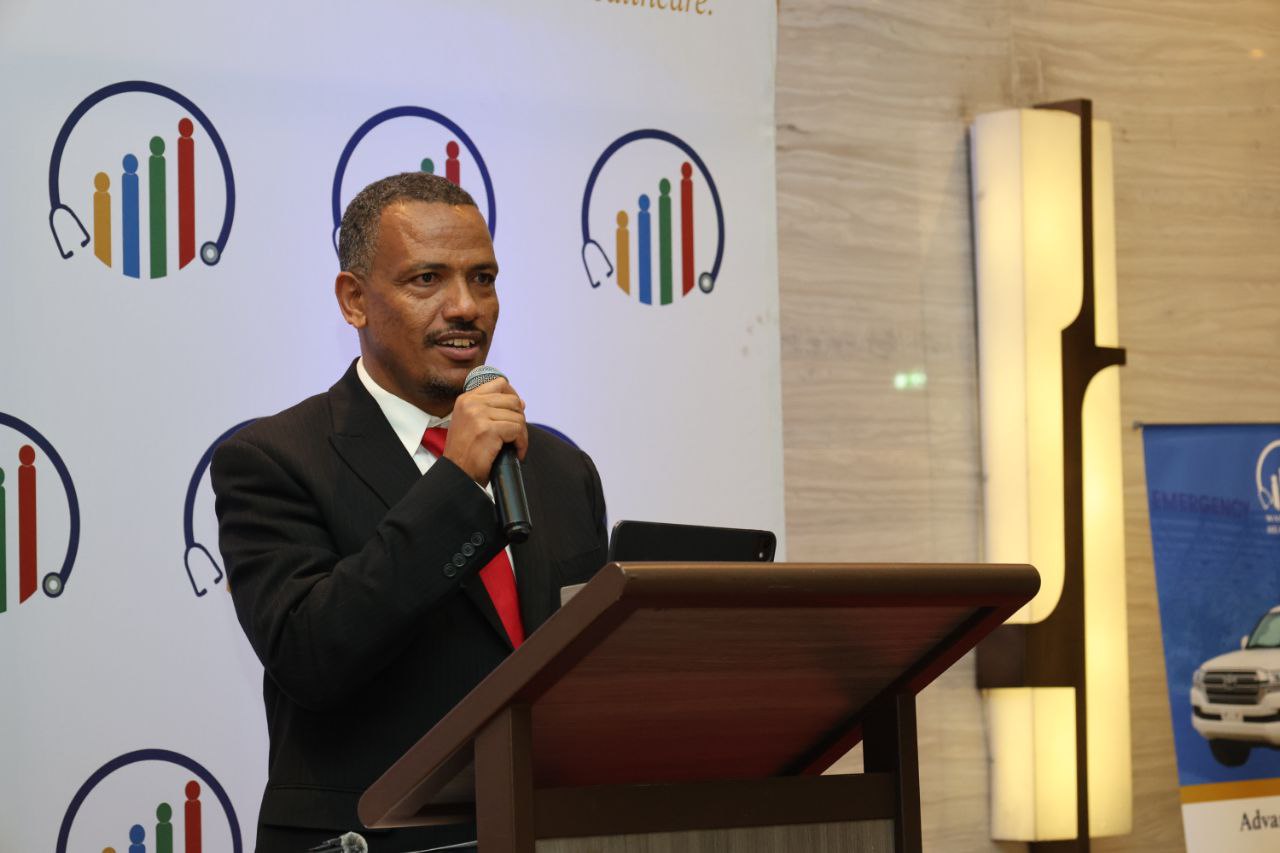
Sep 3 , 2022
By TSION HAILEMICHAEL ( FORTUNE STAFF WRITER )
Commercial farmers and unions in the Amhara Regional State are to see an opportunity to buy machines if a deal a state-owned corporation struck with a German company goes through unimpeded.
The Ethiopian Agricultural Businesses Corporation (EABC) is buying 115 tractors valued at five million dollars hoping to foster mechanisation on farmlands in the region. Its executives have ordered the procurement from Same Deutz-Fahr (SDF) Group, one of the largest tractor manufacturers globally. In business for 160 years, the company assembles tractors at plants in Italy, Germany, and India.
Mengistu Kifle, the Corporation’s executive officer for agricultural equipment supply, expects the tractors the Corporation orders, with engine capacities between 110 and 180 horsepower (hp), to arrive in four months. He disclosed that large-scale farmers, cooperatives, and unions in the regional state, home to over 4,500 pieces of agricultural machinery, are eligible to buy the tractors through a credit scheme.
Last year, the Amhara regional agricultural bureau facilitated the supply of 1,200 tractors. Farmers with tractors ploughed over half a million hectares of land last year.
“There remains a huge demand,” Ajebe Sentayehu, deputy head of the regional agriculture bureau, told Fortune.
Regional authorities plan to import 1,000 tractors and 200 combine harvesters this year. Half of the region’s 4.8 million hectares of farmland is suitable for mechanised farming.
Established eight years ago with 610 million Br in paid-up capital, the Corporation supplies agricultural inputs and machinery. Under Kefle Woldemariam, the Corporation spent 62 billion Br procuring inputs such as fertilisers and agrochemicals last year. It generated 3.4 billion Br from sales and service fees over the same period. It also imported 58 tractors for 132 million Br.
The government had favoured labour-intensive agricultural production until eight years ago when the Ministry of Agriculture introduced a mechanisation strategy to improve smallholder farmers’ access to machinery to 30pc. Demand for machinery has accelerated over the last decade as more farmers became familiar with the application of mechanical power. By the end of last year, close to 17pc of smallholder farmers were using tractors, while 12pc operated modern combine harvesters.
The 7.5 million smallholder farmers in the Oromia Regional State have adapted most to mechanisation. Twelve percent use tractors compared to less than 200,000 farmers in the Amhara Regional State who are adept at agricultural machinery. Supply has been growing, albeit slowly. Close to 4,100 tractors were imported over the past two years, bringing the number to more than 21,200.
Although most of the machinery is shipped in from abroad, a few local assemblers play a marginal role in the market. The state-owned Adama Agricultural Machinery Industry is the oldest plant, competing with the private Kegna Agricultural Machinery Manufacturing. The two assemblers have thus far supplied the market with over 2,400 tractors.
In 2020, the federal government exempted importers of agricultural machinery from value-added tax (VAT) and duties, reducing prices by up to 40pc. Domestic tractor assemblers have enjoyed exemption from VAT since last year. The depreciation of the Birr has put the machinery out of reach for most farmers.
Nonetheless, mechanisation covers less than 10pc of the 22.8 million hectares ploughed by 18 million rural households nationwide. Most farmers still use manual labour and livestock for farming highly fragmented plots. Shimeles Araya (PhD), an agricultural economist who has been teaching at Hawassa University, sees this as the main obstacle to expanding agricultural mechanisation. The average smallholder landholding is 0.84hct.
“However, the use of machinery is picking up following the adoption of cluster farming,” said Shimeles.
Introduced three years ago, the cluster scheme puts adjacent farmlands using similar inputs and shared machinery. Over 1.3 million smallholder farmers cultivate through this scheme.
Shimeles observes that making agricultural machinery affordable for smallholder farmers is key to transforming rain-fed and subsistence farming. Farmers access machinery through cooperatives and unions. Over the past five years, cooperatives and unions have become the major players in the mechanisation drive. Although rates depend on the location of the field and distance from roads, unions avail machinery at discounted prices.
Damot Cooperative Union in the West Gojjam Zone of the Amhara Regional State has 180,000 farmers and 77 primary cooperatives. It owns a dozen tractors and two combine harvesters, acquired over the last three years for 17 million Br from Ethio-Lease. A subsidiary of the African Asset Finance Company (AAFC), it was incorporated in 2019 with a capital of 400 million Br. Ethio-Lease covered 80pc of the total cost of the machines Damot Union rents to farmers.
The Union rents its tractors for a fee of 4,000 Br a hectare. It is more than double the rate from two years ago. Mezgebu Mekonnen, deputy manager, blames rising spare parts and fuel costs for the price surge.
“Demand is beyond our capacity,” said Mezgebu.
The climbing rates do not deter smallholder farmers like Tadesse Aderajew, 52, who grows wheat on two hectares, from renting. A father of five, he harvests 40qtl of grain a hectare, over 30pc higher than the national average productivity.
“The tractor reduces labour costs and helps me gain better yields,” said Tadesse.
PUBLISHED ON
Sep 03,2022 [ VOL
23 , NO
1166]

Radar | Nov 16,2024

Radar | Oct 09,2021

Fortune News | Jun 17,2023

Fortune News | Sep 13,2025

Radar | Nov 21,2018

Sponsored Contents | May 02,2023

Radar | Jul 13,2025

Covid-19 | Feb 13,2021

Editorial | Jul 17,2022

Advertorials | Sep 24,2024

Dec 22 , 2024 . By TIZITA SHEWAFERAW
Charged with transforming colossal state-owned enterprises into modern and competitiv...

Aug 18 , 2024 . By AKSAH ITALO
Although predictable Yonas Zerihun's job in the ride-hailing service is not immune to...

Jul 28 , 2024 . By TIZITA SHEWAFERAW
Unhabitual, perhaps too many, Samuel Gebreyohannes, 38, used to occasionally enjoy a couple of beers at breakfast. However, he recently swit...

Jul 13 , 2024 . By AKSAH ITALO
Investors who rely on tractors, trucks, and field vehicles for commuting, transporting commodities, and f...

Oct 25 , 2025
The regulatory machinery is on overdrive. In only two years, no fewer than 35 new pro...

Oct 18 , 2025
The political establishment, notably the ruling party and its top brass, has become p...

Oct 11 , 2025
Ladislas Farago, a roving Associated Press (AP) correspondent, arrived in Ethiopia in...

Oct 4 , 2025
Eyob Tekalegn (PhD) had been in the Governor's chair for only weeks when, on Septembe...